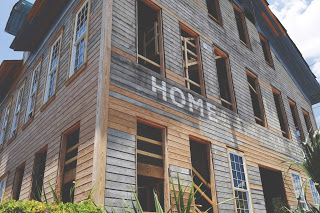How to Buy a Historic Home in Virginia
 One of the great things about Northern Virginia and specifically Manassas, Haymarket, and Bristow is that all of these towns have rich histories, particularly from the Civil War era. If history interests you and you love architecture from days gone by, and if you go in with a clear understanding of the related expenses, a historic home may be for you.
One of the great things about Northern Virginia and specifically Manassas, Haymarket, and Bristow is that all of these towns have rich histories, particularly from the Civil War era. If history interests you and you love architecture from days gone by, and if you go in with a clear understanding of the related expenses, a historic home may be for you.
The National Register of Historic Places and the Virginia Landmarks Register were established in 1966 and are managed by the National Park Service and the Department of Historic Resources, respectively. Virginia has approximately 3,000 registered historic properties. You can visit the state and national registers online to learn more about these properties, updates, and educational programs.
Here are some tips for buying a historic home:
- First, you need to understand whether you are buying a historic home that is registered in the National Register of Historic Places or buying a home that is in a historic district but not in the registry yet. Each scenario has different tax credits and benefits, which you should discuss with your CPA before signing a sale contract.
- Once you have identified the property, have a home inspection contingency in the sale contract as a condition of the sale before closing. Choose an inspector who specializes in older homes and hire a structural engineer to fully assess the repairs and restoration.
- Older homes can contain asbestos, radon, and lead paint, so make sure your sales contract allows for additional tests, and know that all results pass safety and health standards.
- Know your budget for purchasing and renovating your home up front so you can choose the right home. Armed with the information from your home inspections, get price estimates from contractors to see how much the repairs and improvements will cost.
- There are local and state laws that govern the rehabilitation of historic buildings. Be very familiar with these laws to make sure you’re able to fulfill your obligation to properly remodel the property.
- Understand that the goal of renovating a historic home is to preserve the original structure as much as possible, so certain renovations are off limits.
- Check out the last year’s utility bills if the property is functional. It may cost you a pretty penny to heat and cool an older home, so learn the facts before you purchase.
- Get an estimate on homeowner’s insurance. Make sure you can get replacement cost coverage to receive the highest protection.
- Check the tax rate for the historic district you’re shopping in. Sometimes there is a special tax associated with living in that area.
- Virginia has a program that offers special tax credits to certified historic structures, so choosing a historic home may have some attractive financial benefits. Ask your realtor for a CPA referral if you don’t already have one.
Historic homes are not for everyone, but if you feel passionate about purchasing an older home that has a classic American look and feel, we can help you find just the right home, as well as help with your homework. At Jacobson Realty and Home Staging, we know the historic areas and the market. Let us help you find the home of your dreams! Contact us today.
1,953 total views, 1 views today